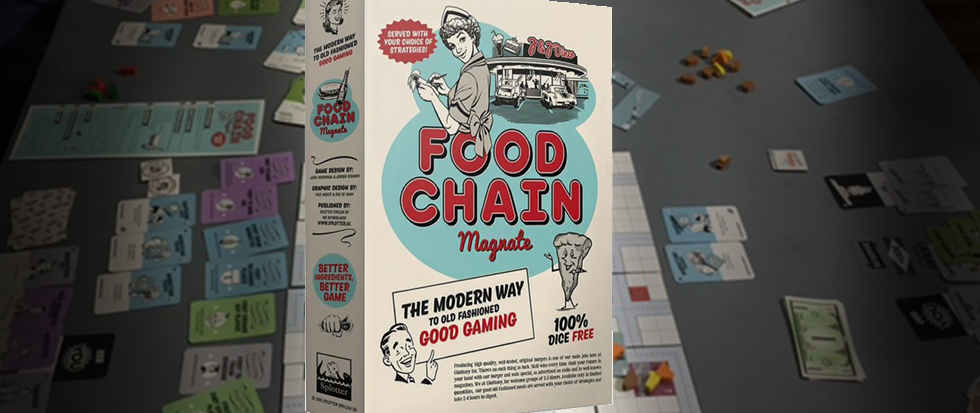
Manipulate Fate
There’s something inherently pleasing about dice manipulation. Dice represent randomization, a game element meant to take control away from the players, so anything that gives us back some degree of control will inevitably make us feel clever. You feel like you’ve found a workaround to a confining system, or an illicit loophole to be exploited as a way to cheat. That’s exactly how Sentient, a game about manipulating dice to score the most points, feels to play.
You only ever roll your five dice once per round in Sentient, which is enough to randomize an initial game state for you to play around in. Every other part of the game is you adjusting the numerical value of each die by placing cards between two of them. These cards score you points, but they also can make neighboring dice go one higher, one lower, or stay the same. The scoring part of the cards tells you under what conditions you score points – if the neighboring dice are both odd, if they add up to a certain range of numbers, and so on. You do this for a few rounds and then count up your score. Other than a mechanic where you bid on winning investor chips for additional endgame scoring, that’s about it for rules.
Dice manipulation is mostly used as one of several core mechanics in a game, but Sentient proves it can carry an entire game on its own. Having the cards be dual purpose, with manipulation bolted onto scoring methods, crystalizes the game into moments of careful thought and planning – do you go for the card that will score with your setup as it stands right now? Or will you pick a card that only fulfills one requirement and hope you find a card that can change the other die to what you need, risking not scoring the card if you don’t? And then you also have to consider what types of cards you’re taking to maximize your investor points, warping your overall strategy. The truly great part about Sentient is that you’re always grasping at something that seems just out of reach, and it’s up to you to determine whether you can make it happen or not.
Sentient also themes its mechanics in exactly the way we tend to view dice manipulation: like cracking a computer code. While you’re not exactly hacking for some great heist – you’re programming robots into your network by manipulating your registers correctly – the game has some of the best eureka moments I’ve ever experienced, and that very much falls in line with code cracking. Sentient asks you to bend numbers to your will and gives you the tools to do so while sticking to a very cool, very light cyberpunk theme.
I’m still thinking about my time with Sentient, puzzling out different combinations of dice in my head, trying to score the most points. It’s probably one of my favorite games of the year, no small feat for something so seemingly simple. Sentient makes me feel clever in ways few games attempt, harnessing the power of dice manipulation to craft moments of genius. Take that, variance!





